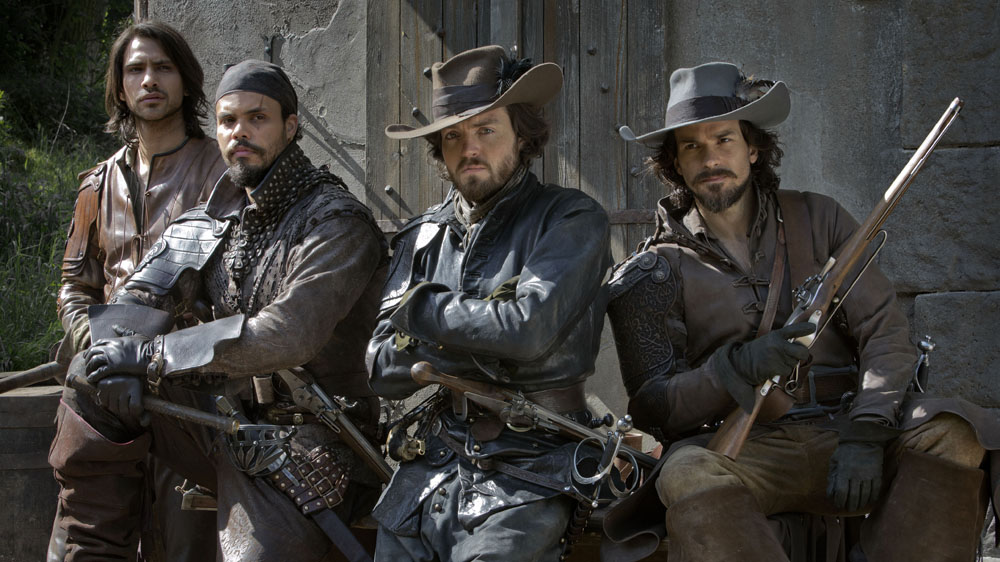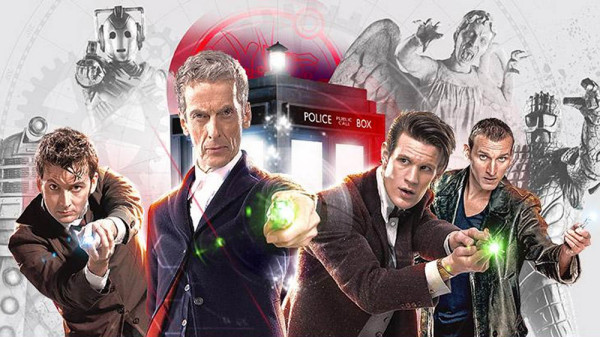Since Doctor Who’s return to our televisions in 2005, composer Murray Gold has brought a whole universe of new music to each season.
Next weekend the Doctor Who Symphonic Spectacular – a live performance of music from the show – begins touring the UK, featuring over 100 performers including the BBC National Orchestra of Wales and members of the BBC National Chorus of Wales.
CultBox recently caught up with Murray via Skype in New York to discuss the concerts, composing for Doctor Who, and just about everything else…
Hello!
“Is that a ukelele in the background there?”
Oh! *spotting the neglected ukulele on a bookshelf * Yeah! It’s very out-of-tune, and I don’t think it’s been played in a while, sadly.
“Ah.”
See, because I’ve got these teensy weensy little stumpy fingers, and yet I learned to play on a classical guitar, so anything with a smaller neck honestly confuses me.
“Really? Wow, but, first of all they don’t look like teensy weensy fingers, and second of all, so, was it tough? Are you a good guitarist?”
Good is such a relative term, isn’t it?
“Your little finger’s quite small, you know, some people have a little finger up to here *indicates a less-stumpy finger length* I want this one *indicates ring finger* to be longer. For piano, this is annoying. I could do with like half a centimetre more of this.”
I used to play piano, but I had to scale back because my reach is so teensy it was giving me perma hand cramp, and when you’ve already got bad joints, it just…
“Oh yeah, I’ve got a good guitarist friend who has got RSI.”
So let’s be grateful for decent musician hands.
“Yeah, well done hands!”
True. I suppose I should ask you some actual questions.
“Well, if you want to, but I’m quite happy talking about hands. There was this journalist, about a week ago, we actually hired him and he’s covering the notes for the programme and he spoke to me for like an hour, because once I start talking about music, I don’t really stop.”
That’s no bad thing.
“But there’s a limit to how much anybody’s actually going to want to listen to me, so be mindful of the audience’s needs. Do you write a lot about sci-fi or television or both?”
Very much both. I just finished covering The Musketeers.

“Oh, that’s the second season! I haven’t seen any of it yet, I dropped out of it. I just didn’t have time. See, now I can drop out of series when I decide I don’t have time to do them anymore.”
And that’s a good thing!
“Yeah, it’s difficult but it’s good. You know, the one series I loved doing, besides Doctor Who, was Life Story. You know, that was one of the very, very few series I could do and it’s got the same level of love.”
That’s wonderful, that’s so good.
“See, I’ve got this book from 1979 which was the school prize, the year prize for English, and it’s Life on Earth by David Attenborough, and it says “MJ Gold, English Prize, 1979” inside it. So when I did that, it was like, wow, like, I’m doing Life on Earth and Doctor Who, these are the two things I was obsessed by in 1979. It’s weird how it works out like that.”
Absolutely.
“And when I go looking for something that’s as fun or as enjoyable – you know, most of the time, writing music for TV, music is not that high on the list of what you’d think is necessary for the success of a show. In the programme-makers’ eyes, it’s relatively unimportant.”
Really?
“It’s hard to find something where it really feels like it really is important, like Doctor Who.”
Continued on Page 2…

